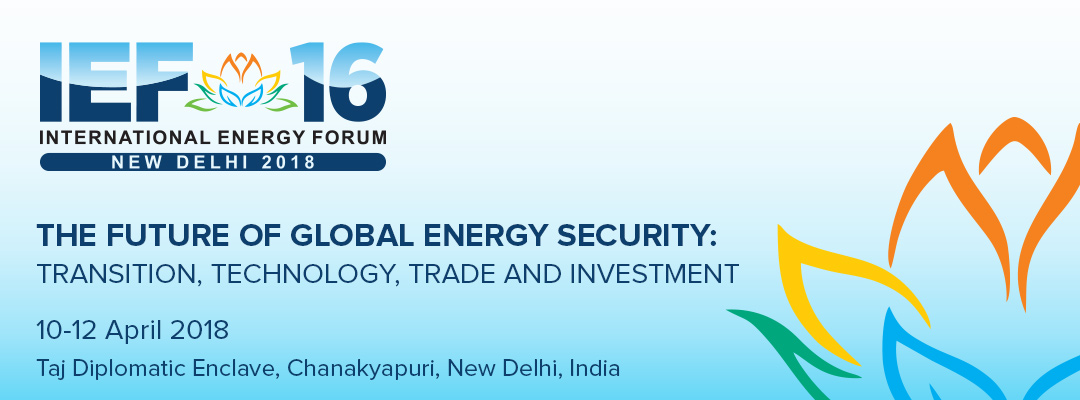IEF16 Ministerial
New Delhi, India
The Government of India hosted 90+ delegations including 50 energy ministers, 30 CEOs, 12 heads of international organisations and 500+ guests at the 16th biennial International Energy Forum Ministerial Meeting (IEF16) in New Delhi on 10-12 April 2018 with the support of the People’s Republic of China and the Republic of Korea as co-hosts. The meeting was held under the theme: "The Future of Global Energy Security - Transition, Technology, Trade and Investment". Providing the opportunity for attendees to discuss relevant issues that currently affect global energy markets, the IEF Ministerial is the largest gathering of energy ministers in the world.
Meeting on the neutral global platform that the IEF provides to strengthen international cooperation on energy through dialogue, the IEF16 focused on how global shifts, transition policies and new technologies influence market stability and future investment and trade patterns in the energy sector. Dialogue among Ministers and industry leaders on how global shifts, new policies and technologies change investment and trade patterns and influence energy market security, facilitate orderly transitions, and accelerate the achievement of shared goals.
On behalf of the IEF16 host country, Shri Narendra Modi, Prime Minister of India inaugurated the IEF16 Ministerial Meeting. Prime Minister Modi shared his energy vision as comprising four pillars – energy access, energy efficiency, energy sustainability and energy security. He called for a mutually supportive relationship between producers and consumers. He also called for optimal use of the neutral platform of the IEF to build a global consensus on ‘responsible pricing’, that serves the mutual interests of both producers and consumers. H.E. Dharmendra Pradhan, Minister for Petroleum and Natural Gas and Minister for Skill Development and Entrepreneurship of India, HE Khalid Al Falih, Minister of Energy, Industry and Mineral Resources of the Kingdom of Saudi Arabia, and H.E. Sun Xiansheng, Secretary General of the International Energy Forum also addressed delegates at the Inaugural Session, setting the scene for the Forum’s discussions.
Ministerial dialogue was structured in four thematic plenary sessions, and four parallel roundtables focussed on:
- Global shifts: The Future of Global Energy Security – Finding New Balances
- Sustainable and Inclusive Growth – Energy Access and Affordability
- Oil and Gas Market Stability and Change – Investment in a New Era
- Uptake of Clean Technologies: Disruption and Coexistence of New and Existing Technologies – The Way Ahead
Meeting at a time of uncertainty, dynamism and change, IEF16 ministers acknowledged that global energy security is taking on new meanings that have just as much to do with adaptability as energy access, affordability, and inclusive and sustainable growth. IEF16 ministers noted that their presence in New Delhi manifests that, through open dialogue, energy market stakeholders can move forward faster and farther when embracing shared value propositions that benefit all. Noting from contributions by both the International Energy Agency and the Organization of the Petroleum Exporting Countries that the fossil fuel sector shall continue to provide around three-quarters of energy demand in 2040, as projected in their main scenarios, IEF16 delegates focused dialogue on the mutual reinforcing role of fossil fuels and clean energy technologies, including renewables calling for reliable, and realistic transformations that all can afford, and rational responses to the global energy challenges we face together.

Photo: Heads of Delegation at the IEF16.
Delegates took note of the contributions by the OPEC Fund for International Development (OFID), and the Gas Exporting Countries Forum (GECF), acknowledging that global agreements on shared goals, and energy access concluded under the aegis of the United Nations in 2015, are in the early phases of implementation and that despite progress, collective efforts must be stepped up to achieve universal energy access and alleviate energy poverty by 2030.
IEF16 delegates focussed on the limited volume of upstream oil and gas sector investments as a consequence of the downward price cycle, and the risks and opportunities that new unconventional production resilience brings to the stability of oil and gas markets globally. Ministers and industry leaders welcomed enhanced dialogue on the role of new and existing energy producers and innovative cooperative arrangements to collectively shoulder the responsibility of maintaining oil and gas market stability and ensure investment moves forward in a timely and cost-effective manner in both short and longer cycle oil and gas projects.
Delegates welcomed the rapid development of new energy technologies and the competitive disciplines a more diverse and vibrant market environment creates for the industry at large. To ensure successful energy sector transformations, IEF16 delegates acknowledged that more dialogue is needed on new policy and technology deployment to facilitate cost-effective transitions between new and existing technologies. Delegates recognised that failure to protect investments of existing assets in favour of new technologies will deter the effective mobilisation of capital in new projects as well.
IEF16 delegates noted that global shifts in energy demand and supply patterns, as well as rapid technology advances alter world energy market dynamics and compel corresponding governance structures including the institutional set up of the IEF energy dialogue to respond to evolving producer-consumer relations. IEF16 delegates also acknowledged that as energy markets are governed by complexity, enhanced dialogue on probable energy pathways will improve market transparency and work to achieve shared goals together. They noted that institutional cooperation has gone from strength to strength to make different outlook projections more comparable, raise the energy dialogue to a higher level and welcomed sharpened focus on reducing differences in historical baseline data, improving fuel type classifications and the modernisation of country classifications.
IEF16 ministers, industry leaders, and heads of international organisations applauded the leadership of the government of India in taking the IEF energy dialogue forward as host of the 16th International Energy Forum Ministerial. Thanking the government of India for its generous hospitality, and the People’s Republic of China and the Republic of Korea for their support as co-hosts, IEF16 delegates took note of the productive outcomes of their dialogue reflected in the concluding statement (available for download) that H.E. Dharmendra Pradhan, Minister for Petroleum and Natural Gas, and Minister for Skill Development and Entrepreneurship presented on behalf of the government of India

Photo: The Honourable Shri Narendra Modi opens the IEF16
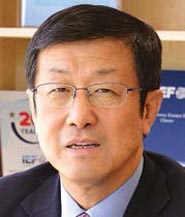 GLOBAL ENERGY TRANSITION: AN ENHANCED ROLE FOR THE DIALOGUEBy H.E. Dr Sun Xiansheng
GLOBAL ENERGY TRANSITION: AN ENHANCED ROLE FOR THE DIALOGUEBy H.E. Dr Sun Xiansheng
Secretary General
International Energy Forum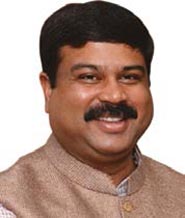 INTERNATIONAL ENERGY FORUMBy H.E. Dharmendra Pradhan
INTERNATIONAL ENERGY FORUMBy H.E. Dharmendra Pradhan
Minister of Petroleum and Natural Gas
Republic of India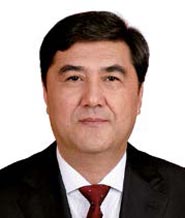 WORK TOGETHER TO BUILD A COMMUNITY OF A SHARED FUTURE FOR MANKINDBy H.E. Nuer Baikeli
WORK TOGETHER TO BUILD A COMMUNITY OF A SHARED FUTURE FOR MANKINDBy H.E. Nuer Baikeli
Vice-Chair of the National Development and Reform Commission, Administrator of the NEA
People’s Republic of China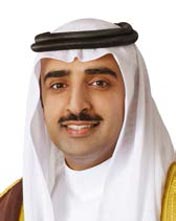 PREPARING BAHRAIN FOR AN LNG FUTUREBy H.E. Shaikh Mohammed bin Khalifa bin Ahmed Al Khalifa
PREPARING BAHRAIN FOR AN LNG FUTUREBy H.E. Shaikh Mohammed bin Khalifa bin Ahmed Al Khalifa
Minister of Oil
Kingdom of Bahrain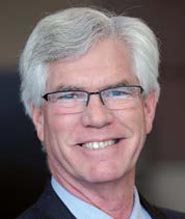 CANADA AND THE FUTURE OF GLOBAL ENERGY SECURITYThe Honourable Jim Carr
CANADA AND THE FUTURE OF GLOBAL ENERGY SECURITYThe Honourable Jim Carr
Minister of Natural Resources
Canada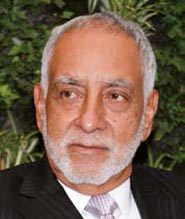 THE FUTURE OF GLOBAL ENERGY SECURITY By H.E. Carlos E. Pérez
THE FUTURE OF GLOBAL ENERGY SECURITY By H.E. Carlos E. Pérez
Minister of Hydrocarbons
Republic of Ecuador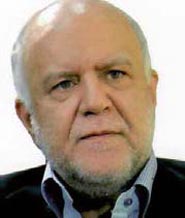 THE CHALLENGE OF MARKET STABILITY AND ENERGY SECURITYBy H.E. Bijan Namdar Zangeneh
THE CHALLENGE OF MARKET STABILITY AND ENERGY SECURITYBy H.E. Bijan Namdar Zangeneh
Minister of Petroleum
Islamic Republic of Iran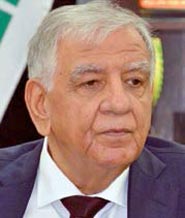 GLOBAL ENERGY MARKETS AND THE GROWTH OF THE ECONOMY IN IRAQBy H.E. Jabbar Ali Hussein Al-Luiebi
GLOBAL ENERGY MARKETS AND THE GROWTH OF THE ECONOMY IN IRAQBy H.E. Jabbar Ali Hussein Al-Luiebi
Minister of Oil
Republic of Iraq ENERGY DIALOGUE – BECAUSE IT MATTERSBy H.E. Terje Søviknes
ENERGY DIALOGUE – BECAUSE IT MATTERSBy H.E. Terje Søviknes
Minister of Petroleum and Energy
Kingdom of Norway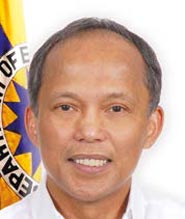 KEY ENERGY SECTORAL POLICIES IN THE PHILIPPINESBy H.E. Mr Alfonso Cusi
KEY ENERGY SECTORAL POLICIES IN THE PHILIPPINESBy H.E. Mr Alfonso Cusi
Secretary of Energy
Republic of the Philippines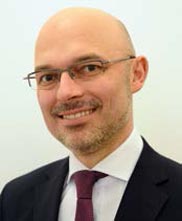 THE ROLE OF GLOBAL ENERGY DIALOGUE IN CHANGING ENERGY MARKETSBy Michal Kurtyka
THE ROLE OF GLOBAL ENERGY DIALOGUE IN CHANGING ENERGY MARKETSBy Michal Kurtyka
Undersecretary of State
Ministry of Energy
Republic of Poland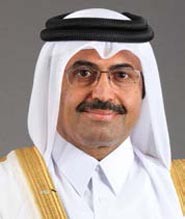 GLOBAL ENERGY SECURITY THROUGH TO 2040 – PROSPECTS & CONSEQUENCESBy H.E. Dr. Mohammad Saleh Al Sada
GLOBAL ENERGY SECURITY THROUGH TO 2040 – PROSPECTS & CONSEQUENCESBy H.E. Dr. Mohammad Saleh Al Sada
Minister of Energy & Industry
State of Qatar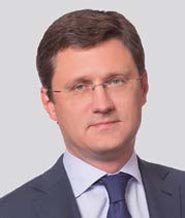 THE FUTURE OF THE GLOBAL ENERGY PARADIGM – RUSSIABy H.E. Alexander Novak
THE FUTURE OF THE GLOBAL ENERGY PARADIGM – RUSSIABy H.E. Alexander Novak
Minister of Energy
Russian Federation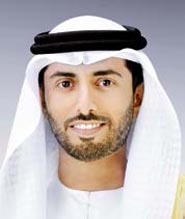 THE FUTURE OF GLOBAL ENERGY SECURITY: SHARED COMMITMENTBy H.E. Suhail Mohamed Al Mazrouei
THE FUTURE OF GLOBAL ENERGY SECURITY: SHARED COMMITMENTBy H.E. Suhail Mohamed Al Mazrouei
Minister of Energy & Industry
United Arab Emirates
President of the OPEC Conference 2018 ”NEW ENERGY REALISM” AND AMERICA’S GROWING ENERGY ABUNDANCEBy H.E. Rick Perry
”NEW ENERGY REALISM” AND AMERICA’S GROWING ENERGY ABUNDANCEBy H.E. Rick Perry
Secretary of Energy
United States of America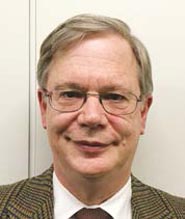 ENERGY SECURITY IN APECBy James Kendell
ENERGY SECURITY IN APECBy James Kendell
Vice-president
Asia Pacific Energy Research Centre (APERC)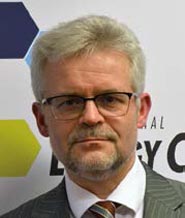 ENSURING INVESTOR CONFIDENCE THROUGH THE ENERGY TRANSITIONBy Urban Rusnák
ENSURING INVESTOR CONFIDENCE THROUGH THE ENERGY TRANSITIONBy Urban Rusnák
Secretary General
Energy Charter Secretariat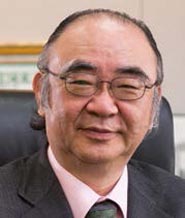 DEVELOPMENT IN THE EAST ASIA SUMMIT REGIONBy Hidetoshi Nishimura
DEVELOPMENT IN THE EAST ASIA SUMMIT REGIONBy Hidetoshi Nishimura
President
Economic Institute for ASEAN and East Asia (ERIA)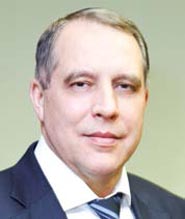 NATURAL GAS: THE FUEL OF CHOICE TO PROVIDE ENERGY SECURITY IN THE ERA OF ENERGY TRANSITIONBy H.E. Yury Sentyurin
NATURAL GAS: THE FUEL OF CHOICE TO PROVIDE ENERGY SECURITY IN THE ERA OF ENERGY TRANSITIONBy H.E. Yury Sentyurin
Secretary General
Gas Exporting Countries Forum (GECF) FUTURE OF ENERGY SECURITY: TRANSITION, TECHNOLOGY, TRADE AND INVESTMENTBy H.E. Fatih Birol
FUTURE OF ENERGY SECURITY: TRANSITION, TECHNOLOGY, TRADE AND INVESTMENTBy H.E. Fatih Birol
Executive Director
International Energy Agency (IEA)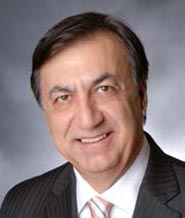 LNG – ENHANCING GLOBAL ENERGY SECURITYBy Menelaos Ydreos
LNG – ENHANCING GLOBAL ENERGY SECURITYBy Menelaos Ydreos
Executive Director of Public Affairs
International Gas Union (IGU)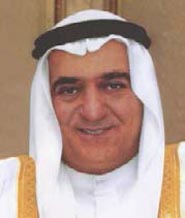 THE NEED FOR INVESTMENT TO MEET GROWING ENERGY DEMANDBy H.E. Abbas Ali Al-Naqi
THE NEED FOR INVESTMENT TO MEET GROWING ENERGY DEMANDBy H.E. Abbas Ali Al-Naqi
Secretary General
Organization of Arab Petroleum Exporting Countries (OAPEC)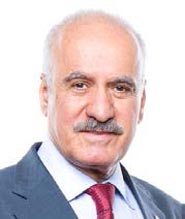 ENERGY, THE SDGS AND THE NEXUS: OFID RECORDSBy H.E. Suleiman Jasir Al Herbish
ENERGY, THE SDGS AND THE NEXUS: OFID RECORDSBy H.E. Suleiman Jasir Al Herbish
Director General
The OPEC Fund for International Development (OFID)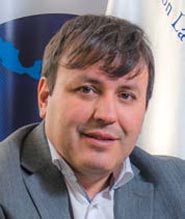 THE IMPORTANCE OF RELEVANT, CONSISTENT, RELIABLE AND COMPARABLE ENERGY DATABy Alfonso Blaco
THE IMPORTANCE OF RELEVANT, CONSISTENT, RELIABLE AND COMPARABLE ENERGY DATABy Alfonso Blaco
Executive Secretary
The Latin America Energy Organisation (OLADE)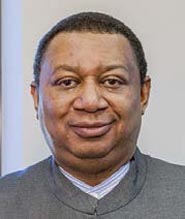 DIALOGUE IS MAKING A DIFFERENCEBy H.E. Mohammad Sanusi Barkindo
DIALOGUE IS MAKING A DIFFERENCEBy H.E. Mohammad Sanusi Barkindo
Secretary General
Organization of the Petroleum Exporting Countries (OPEC)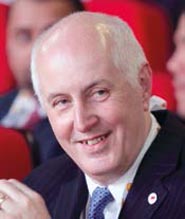 SCARY NUMBERSBy Pierce Riemer
SCARY NUMBERSBy Pierce Riemer
Director General
World Petroleum Council (WPC)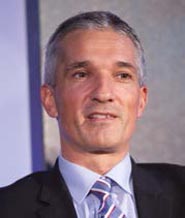 DISRUPTION AND NEW INNOVATION TECHNOLOGIESBy H.E. Christoph Frei
DISRUPTION AND NEW INNOVATION TECHNOLOGIESBy H.E. Christoph Frei
Secretary General
World Energy Council (WEC)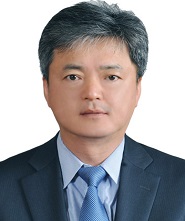 KOREA: ON THE PATH OF REFORMING ENERGY SYSTEMS WITH 4TH INDUSTRIAL REVOLUTION TECHNOLOGIESBy H.E. Inho Lee
KOREA: ON THE PATH OF REFORMING ENERGY SYSTEMS WITH 4TH INDUSTRIAL REVOLUTION TECHNOLOGIESBy H.E. Inho Lee
Deputy Minister for Trade Ministry of Trade, Industry & Energy (MOTIE)
Republic of Korea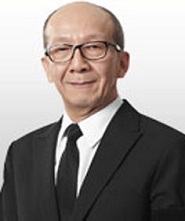 THE FUTURE OF THAILAND’S ENERGY SECURITY: TRANSITION, TECHNOLOGY, TRADE AND INVESTMENTBy H.E. Dr. Siri Jirapongphan
THE FUTURE OF THAILAND’S ENERGY SECURITY: TRANSITION, TECHNOLOGY, TRADE AND INVESTMENTBy H.E. Dr. Siri Jirapongphan
Minister of Energy
Thailand
Ministerial Videos

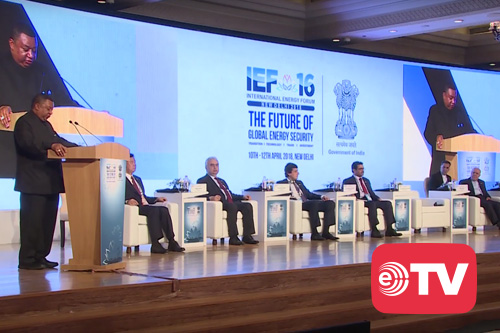 IEF16 Highlights
IEF16 Highlights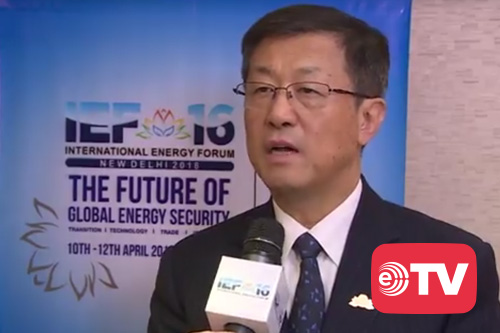 H.E. Dr Sun Xiansheng - Interview
H.E. Dr Sun Xiansheng - Interview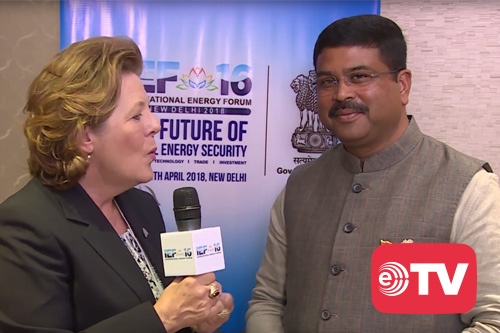 Shri Dharmendra Pradhan - Interview
Shri Dharmendra Pradhan - Interview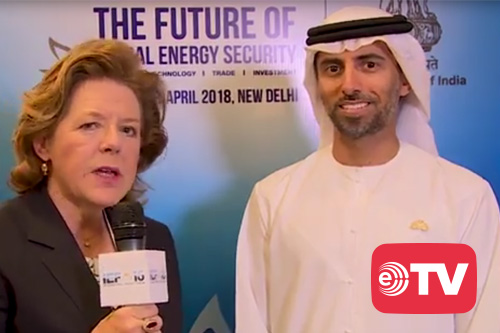 H.E. Suhail Mohamed Al Mazrouei - Interview
H.E. Suhail Mohamed Al Mazrouei - Interview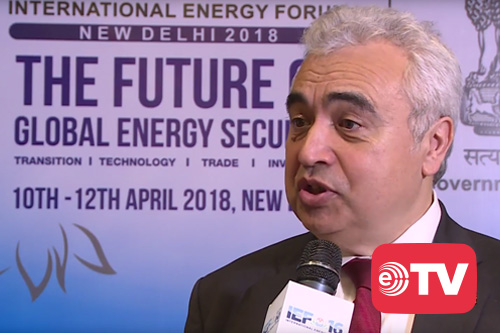 H.E. Fatih Birol - Interview
H.E. Fatih Birol - Interview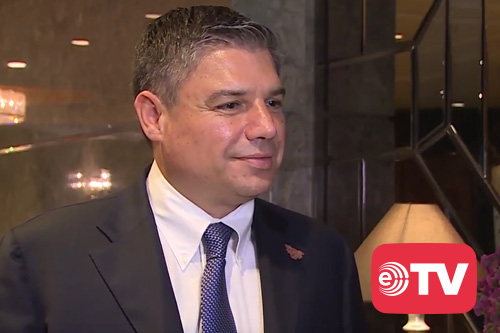 Lorenzo Simonelli - Interview
Lorenzo Simonelli - Interview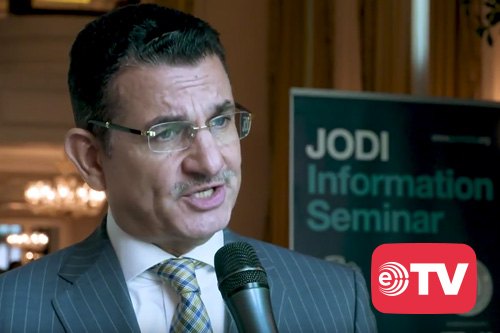 Fuad Al-Zayer - Interview
Fuad Al-Zayer - Interview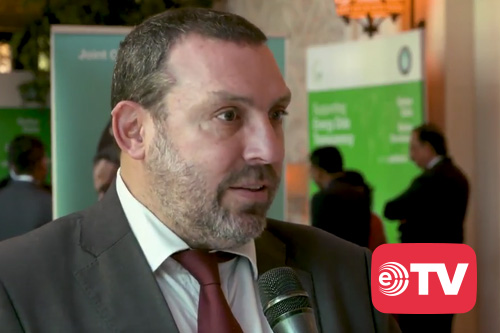 Dr. Andres Schuschny - Interview
Dr. Andres Schuschny - Interview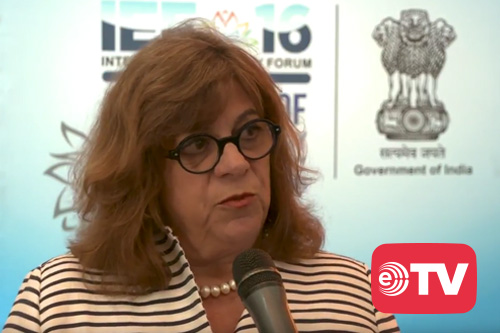 Kate Dourian - Interview
Kate Dourian - Interview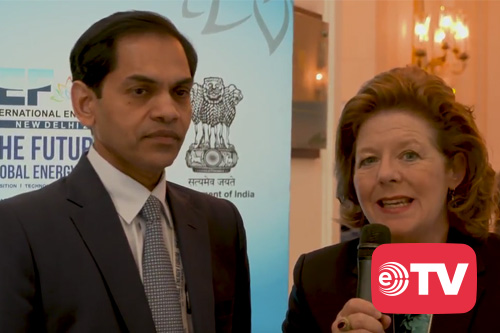 Sunjay Sudhir - Interview
Sunjay Sudhir - Interview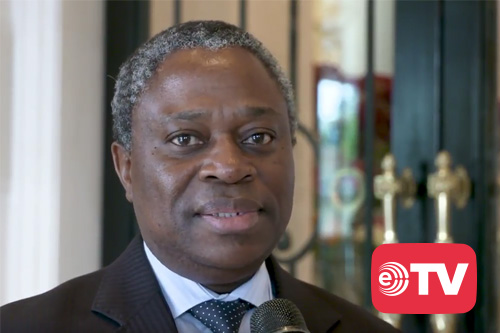 Dr. Adedapo Odulaja - Interview
Dr. Adedapo Odulaja - Interview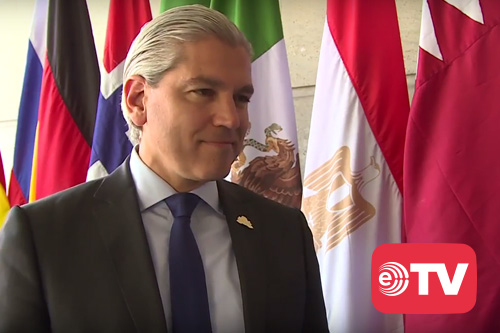 H.E. Aldo Flores-Quiroga - Interview
H.E. Aldo Flores-Quiroga - Interview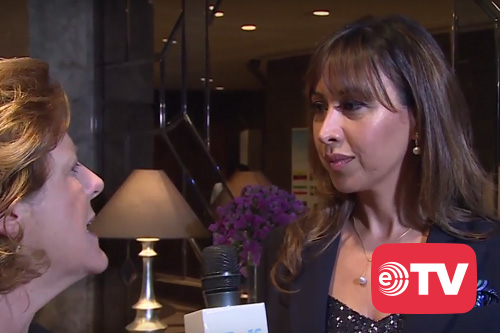 Dr. Carole Nakhle - Interview
Dr. Carole Nakhle - Interview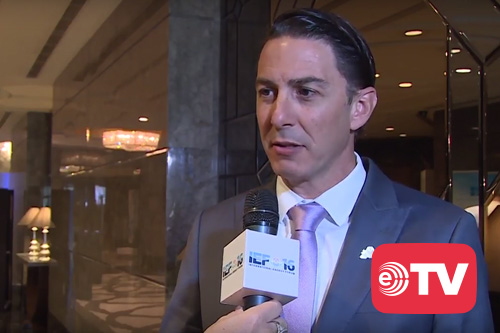 Amos Hochstein - Interview
Amos Hochstein - Interview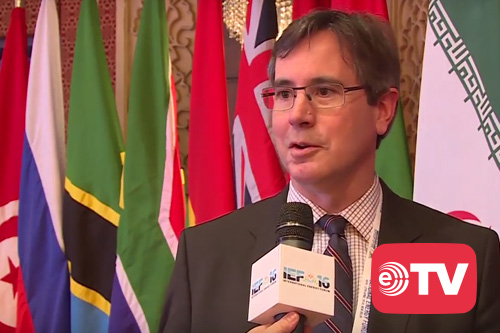 Philip Jennings - Interview
Philip Jennings - Interview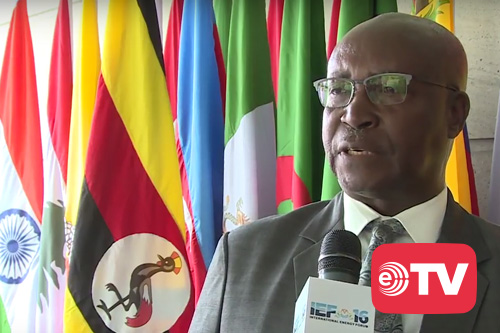 Simon D' Ujanga - Interview
Simon D' Ujanga - Interview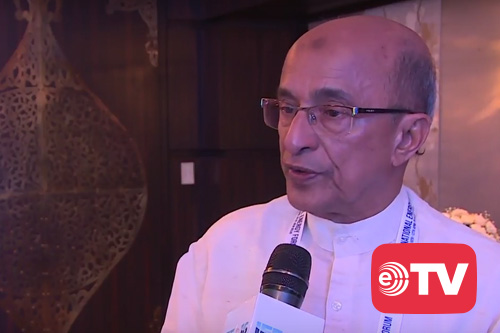 Tawfiq-e-Elahi Chowdhury - Interview
Tawfiq-e-Elahi Chowdhury - Interview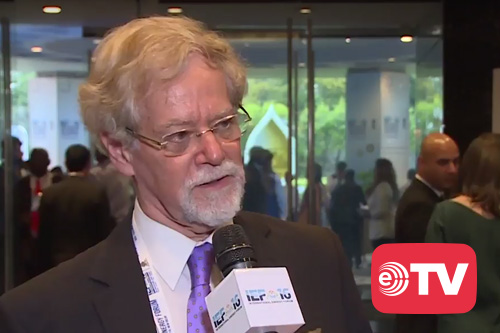 Arne Walther - Interview
Arne Walther - Interview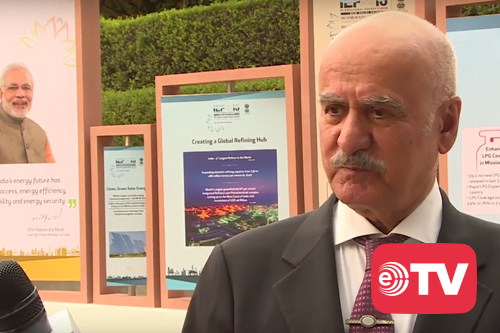 Suleiman Jasir Al-Herbish - Interview
Suleiman Jasir Al-Herbish - Interview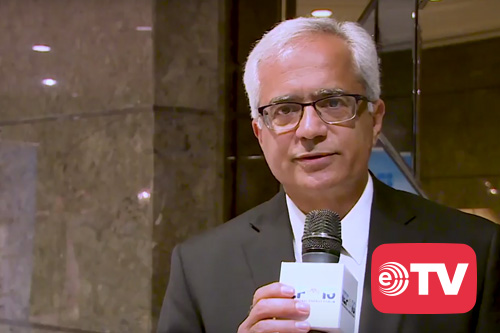 Ashok Belani - Interview
Ashok Belani - Interview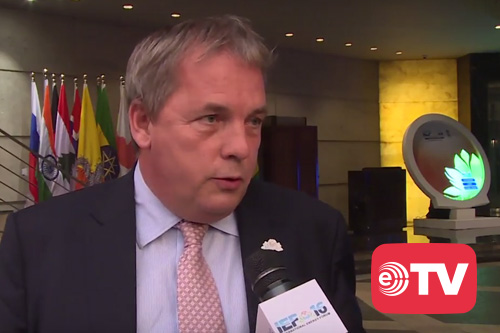 Christof Rühl - Interview
Christof Rühl - Interview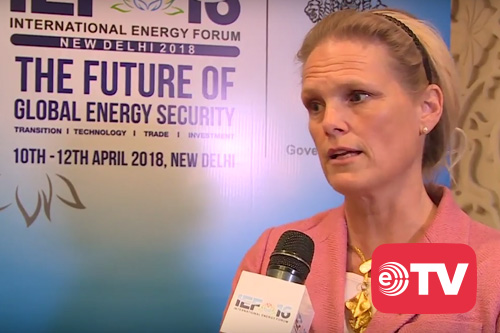 Ingvil Smines Tybring-Gjedde - Interview
Ingvil Smines Tybring-Gjedde - Interview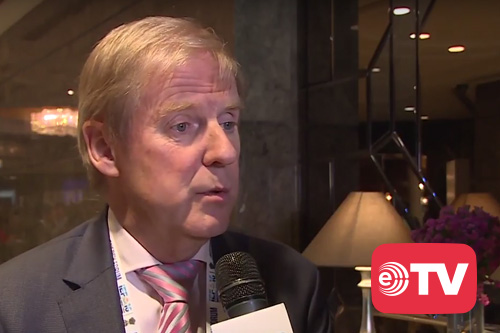 Bert Roukens - Interview
Bert Roukens - Interview

IEF16 Ministerial 2018
Inauguration Session
Welcoming and Scene Setting Remarks
- H.E. Sun Xiansheng, Secretary General, International Energy Forum
- H.E. Khalid Al Falih, Minister of Energy, Industry and Mineral Resources, Saudi Arabia
- H.E. Dharmendra Pradhan, Minister for Petroleum and Natural Gas and Minister for Skill Development and Entrepreneurship, India
- Inaugural Address by Honourable Shri Narendra Modi, Prime Minister, India

Photo: H.E. Sun Xiansheng, H.E. Shri Dharmendra Pradhan, The Honourable Shri Narendra Modi and H.E. Khalid Al Falih inaugurate the IEF16.
Plenary Session 1: Global Shifts: The Future of Global Energy Security - Finding New Balances
Opening Remarks and Introductions by Moderator
- Sean Evers, Founder and Managing Partner, Gulf Intelligence
Scene Setting Remarks
- H.E. Fatih Birol, Executive Director, International Energy Agency (IEA)
- H.E. Mohammad Sanusi Barkindo, Secretary General, Organization of the Petroleum Exporting Countries (OPEC)
- H.E. Li Fanrong, Deputy Administrator, National Energy Administration, China
- Hon. Mark Wesley Menezes, Under Secretary of Energy, United States of America
Moderated Interactive Panel Discussion, Q&A
Panel Speakers (Ministers)
- H.E. Bijan Namdar Zangeneh, Minister of Petroleum, Iran
- H.E. Kosaburo Nishime, State Minister of Economy, Trade and Industry, Japan
- H.E. Mohammed Bin Saleh Al Sada , Minister of Energy and Industry, Qatar
- H.E. Pavel Sorokin, Deputy Minister of Energy, Russian Federation
Panel Speakers (CEOs)
- Wang Yilin, Chairman, China National Petroleum Corporation (CNPC)
- B.C. Tripathi, Chairman and Managing Director, Gail India
- Sanjiv Singh, Chairman, Indian Oil Corporation

Photo: The Honourable Shri Narendra Modi, Prime Minister of India, welcomes the heads of delegation.
Plenary Session 2: Sustainable and Inclusive Growth - Energy Access and Affordability
Opening Remarks and Introductions by Moderator
- Fereidun Fesharaki, Founder and Chairman, FACTS Global Energy (FGE)
Scene Setting Remarks
- H.E. Suleiman Jasir Al-Herbish, Director General, OPEC Fund for International Development (OFID)
- H.E. Yury Sentyurin, Secretary General, Gas Exporting Countries Forum (GECF)
Moderated Interactive Panel Discussion, Q&A
Panel Speakers (Ministers)
- H.E. Mustapha Guitouni, Minister for Energy, Algeria
- H.E. Bir Bikram Tawfiq e Elahi Chowdhury, Adviser (Minister) to Hon'ble Prime Minister for Power, Energy and Mineral Resources Affairs, Bangladesh
- H.E. Tarek El Molla, Minister of Petroleum and Mineral Resources, Egypt
- H.E. Dharmendra Pradhan, Minister for Petroleum and Natural Gas and Minister for Skill Development and Entrepreneurship, India
- H.E. Kazuyuki Nakane, State Minister for Foreign Affairs, Japan
- Phillip Jennings, Associate Deputy Minister of Natural Resources, Canada
- Fatima Alfoora Alshamsi, Assistant Undersecretary for Electricity and Future Energy Affairs, Ministry of Energy and Industry, United Arab Emirates
Panel Speakers (CEOs)
- Lorenzo Simonelli, Chairman, President and Chief Executive Officer, Baker Hughes GE
- D. Rajkumar, Chairman and Managing Director, Bharat Petroleum Corporation Limited
- Nizar Al Adsani, Deputy Chairman and Chief Executive Officer, Kuwait Petroleum Company
- Patrick Pouyanné, Chairman and Chief Executive Officer, Total
- Emma Cochrane, Vice President, LNG, ExxonMobil Gas & Power Company

Parallel Roundtable 1: Refining, and Petrochemical Sector - New Growth Potentials and Rationalisation
Opening Remarks and Introductions by Moderator
- Ambassador Arne Walther, former IEF Secretary General, former Norwegian Ambassador to India, Austria and Japan
Scene Setting Remarks
- Kate Dourian, Programme Officer, Middle East and North Africa, Directorate of Global Energy Relations, IEA
- Ayed Al Qahtani, Director, Research Division, OPEC
Moderated Presentations by Panelists
- Prabh Das, Chief Executive Officer and Managing Director, HPCL-Mittal Energy Limited
- Tinubu Jubril, Group Managing Director, Oando Limited
- Janardhanan Ramanujalu, Vice President, South Asia, Innovation and Business Development, SABIC
- Hidetoshi Nishimura, President, Economic Research Institute for ASEAN and East Asia (ERIA)

Photo: Kate Dourian, Programme Officer, Middle East and North Africa, Directorate of Global Energy Relations, IEA
Parallel Roundtable 2: Fiscal Regimes and Legal Reforms to Attract Investment in the Energy Sector
Opening Remarks and Introductions by Moderator
- H.E. Aldo Flores Quiroga, Deputy Secretary of Hydrocarbons, Ministry of Energy, Mexico
Scene Setting Remarks
Moderated Presentations by Panelists
- H.E. Saleh A. Al Kharabsheh, Minister of Energy & Mineral Resources, Jordan
- H.E. Suhail Mohamed Al Mazrouei, Minister of Energy and Industry, President of the OPEC Conference, United Arab Emirates
- Phillip Jennings, Associate Deputy Minister of Natural Resources, Canada
- Asma Muttawa, General Legal Counsel, OPEC
- Narendra Kumar Verma, ONGC Videsh
- Utpal Bora, Chairman and Managing Director, Oil India Limited
- Carole Nakhle, Director, Crystol Energy, Nonresident Scholar, Carnegie Middle East Center
- Qiang Liu, Director of Energy Division, Institute of Quantitative and Technical Economics, Chinese Academy of Social Sciences (CASS)

Photo: H.E. Aldo Flores Quiroga, Deputy Secretary of Hydrocarbons, Ministry of Energy, Mexico
Parallel Roundtable 3: Energy Sector Digitalisation - Benefits and Challenges
Opening Remarks and Introductions by Moderator
- Ashok Belani, Executive Vice President Technology, Schlumberger
Scene Setting Remarks
- Aya Yoshida, Head, Asia Pacific and Partnership Division, IEA
- Christof van Agt, Senior Energy Analyst, IEF
Moderated Presentations by Panelists
- Bert Roukens, Energy Envoy, Ministry of Economic Affairs and Climate Policy, Netherlands
- Adedapo Odulaja, Head, Data Services Department, OPEC
- R.K. Malhotra, Federation of Indian Petroleum Industry (FIPI)
- David Doppelreiter, Head of Business Unit, RAG Rohöl-Aufsuchungs Aktiengesellschaft
- Ashwin Jacob, Partner, Deloitte Touche Tohmatsu India, Host Country Knowledge Partner

Photo: Adedapo Odulaja, Head, Data Services Department, OPEC
Parallel Roundtable 4: Human Resources: Attracting Talent to a Vibrant Industry - Integrating New Generations and Technologies
Opening Remarks and Introductions by Moderator
- Amos Hochstein, Senior Vice President, Marketing, Tellurian
Scene Setting Remarks
- Pierce Riemer, Director General, World Petroleum Council
Moderated Presentations by Panelists
- Shashi Shanker, Chief Executive Officer and Managing Director, Oil and Natural Gas Corporation Limited, (ONGC)
- M.K. Surana, Chairman and Managing Director, Hindustan Petroleum Corporation Limited (HPCL)
- Carole Nakhle, Director, Crystol Energy, Nonresident Scholar, Carnegie Middle East Center
- Ivan Martén, Senior Partner and Managing Director, Vice Chairman Energy Practice, The Boston Consulting Group (BCG), IEF Knowledge Partner
Plenary Session 3: Oil & Gas Market Stability and Change - Investment in a New Era
Scene Setting Remarks and Introductions by Moderator
- Christof Rühl, Global Head of Research, Abu Dhabi Investment Authority (ADIA)
Moderated Interactive Panel Discussion, Q&A
Panel Speakers (Ministers)
- H.E. Saadeldin Hussein Elbushra Abd Elmagid, State Minister, Sudan
- H.E. Suhail Mohamed Al Mazrouei, Minister of Energy and Industry, United Arab Emirates, President of the OPEC Conference
- H.E. Angel Gonzalez, Vice Minister for Hydrocarbons, Venezuela
- H.E. Ingvil Smines Tybring-Gjedde, Deputy Minister of Petroleum and Energy, Norway
Panel Speakers (CEOs)
- Prabhat Singh, Chief Executive Officer, Petronet LNG Limited (PLL)
- Eelco Hoekstra, Chief Executive Officer, Royal Vopak
- DK Sarraf, Chairman, Petroleum and Natural Gas Regulatory Board
- PMS Prasad, Director, Reliance Industries
- Amos Hochstein, Senior Vice President, Tellurian
IEF Knowledge Partner
Plenary Session 4: Uptake of Clean Technologies: Disruption and Coexistence of New and Existing Technologies - The Way Ahead
Scene Setting Remarks and Introductions by Moderator
- Kamel Ben Naceur, Chief Economist, Abu Dhabi National Oil Company (ADNOC), former Minister of Energy, Tunisia
Moderated Interactive Panel Discussion, Q&A
Panel Speakers (Ministers)
- H.E. Aziz Rabbah, Minister of Energy, Mines, and Sustainable Development, Morocco
- H.E. Siri Jirapongphan, Minister of Energy, Thailand
- H.E. Inho Lee, Vice Minister of Trade, Industry and Energy, Korea
- H.E. Aldo Flores Quiroga, Deputy Secretary of Energy, Mexico
Panel Speakers (CEOs)
- Ashish Bhandari, President, India, Baker Hughes GE
- J.C. Nakra, Chairman & Managing Director, Engineers India Limited
- Ashok Belani, Executive Vice President, Technology, Schlumberger

Photo: H.E. Mohammad Sanusi Barkindo, Secretary General, Organization of the Petroleum Exporting Countries (OPEC)
Concluding Session
Opening Remarks
Special Address: Argentinian - G20 Presidency
- Marcos Pourteau, Undersecretary of Hydrocarbons, Ministry of Energy and Mining, Argentina
Concluding Statement
Valedictory Speech
Announcement of the host and co-host countries of IEF17 Message by/on behalf of the host and co-host, respectively, of the IEF17 in 2020
- H.E. Li Fanrong, Deputy Administrator, National Energy Administration, China
Previous IEF Ministerial Meetings
- IEF15
26-28 September 2016, Algiers, Algeria - IEF14
15-16 May 2014, Moscow, Russia - IEF13 & IEBF5
12-14 March 2012, Kuwait - IEF12 & IEBF4
29 March 2010, Cancun, Mexico - IEF11 & IEBF3
20-22 April 2008, Rome, Italy
Key Documents
- IEF16 Official Publication
- Agenda
- IEF16 Session Introductions
- IEF16 Concluding Statement
- IEF-BCG Background Paper - Plenary Session 1
- IEF-BCG Background Paper - Plenary Session 2
- IEF-BCG Background Paper - Plenary Session 3
- IEF-BCG Background Paper - Plenary Session 4
- IEF-BCG Background Paper - Parallel Roundtable 1
- IEF-BCG Background Paper - Parallel Roundtable 2
- IEF-BCG Background Paper - Parallel Roundtable 3
- IEF-BCG Background Paper - Parallel Roundtable 4
- IEF16 IEA Background Paper
- IEF16 OPEC Background Paper
- IEF16 OFID Background Paper

